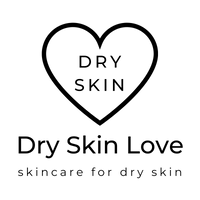Virgin coconut oil is pure cold-pressed coconut oil from the coconut palm fruit.
Virgin coconut oil is composed of fatty acids and polyphenols and has many benefits for dry skin.
The aroma of virgin coconut oil is rich, creamy and subtly sweet.
This article with discuss:
- What is virgin coconut oil?
- How is virgin coconut oil made?
- What does virgin coconut oil smell like?
- What color is virgin coconut oil?
- What does virgin coconut oil feel like?
- What is composition of virgin coconut oil?
- Does virgin coconut oil clog pores?
- Summary
- References

What is virgin coconut oil?
INCI: Cocos nucifera (Virgin Coconut) Oil
Extraction Method: cold pressed
Appearance: clear when liquid, white when solid
Texture: lightweight, smooth, creamy
Aroma: strong natural coconut scent
Virgin coconut oil is pure, cold-pressed oil extracted from the fresh meat of the coconut palm fruit.
It is unrefined, meaning it has not undergone bleaching or deodorizing processes, preserving its natural integrity.
This oil retains a delightful, tropical coconut aroma and is prized for its purity and gentle extraction method.

How is virgin coconut oil made?
Virgin coconut oil can be produced directly from the fresh coconut meat, or from coconut milk, or from coconut milk residue (Bawalan et al, 2006).
Virgin coconut oil is obtained from fresh, mature kernel (meat) of the coconut by mechanical or natural means, with or without the use of heat, without undergoing chemical refining, bleaching or de-odorizing, and which does not lead to the alteration of the nature of the oil (Bawalan et al, 2006).
Refined vs unrefined coconut oil
Virgin coconut oil differs greatly from traditionally produced, copra derived coconut oil, which must undergo chemical refining, bleaching and de-odorization processes to make it suitable for consumption (Bawalan et al, 2006).
Virgin coconut oil has a fresh coconut aroma that can be mild to intense depending on the oil extraction process used.

What does virgin coconut oil smell like?
Virgin coconut oil has a strong natural coconut aroma that is buttery and sweet and evokes memories of summer days at the beach.
The aroma of coconut oil can vary greatly depending on how it is processed.
Extra virgin coconut oil and virgin coconut oil have the strongest natural coconut aroma.
Virgin coconut oil is minimally processed, so it retains its nutrients and aromatic compounds.
Refined coconut oil and MCT oil derived from coconut have minimal to zero coconut aroma.
Learn more: What Does Virgin Coconut Oil Smell Like?

What color is virgin coconut oil?
Virgin coconut oil is a white solid at room temperature, and is clear when it is liquid.

What does virgin coconut oil feel like?
The texture of virgin coconut oil is lightweight, smooth and creamy.
Virgin coconut oil creates an oily, protective barrier on the skin which is absorbed fairly quickly.

What is composition of virgin coconut oil?
Virgin coconut oil is composed of fatty acids, vitamin E polyphenols and minor compounds such as lactones.
Virgin coconut oil is mainly composed of saturated fatty acids, including lauric acid, myristic acid and palmitic acid.
Fatty acids
Virgin coconut oil contains fatty acids including:
- 49% lauric acid
- 18% myristic acid
- 8% palmitic acid
- 8% caprylic acid
- 7% capric acid
- 6% oleic acid
- 2% linoleic acid
- 2% stearic acid

Vitamin E
Coconut oil has been shown to contain vitamin E (Shahidi et al, 2016).
Vitamin E is a family of compounds with different vitamin E activities and antioxidant properties that includes tocopherols and tocotrienols
Coconut oil contains small amounts of vitamin E tocopherols:
- 0.002 - 0.018 mg/g alpha-tocotrienol
- trace - 0.002 mg/g beta-tocotrienol
- trace - 0.001 mg/g gamma-tocopherol
- none - 0.004 mg/g delta-tocopherol
Coconut oil is also a source of vitamin E tocotrienols and has been shown to contain:
- 0.01 - 0.03 mg/g alpha-tocopherol
- trace - 0.002 mg/g beta-tocopherol
- 0.003 - 0.006 mg/g gamma-tocopherol
- trace - 0.001 mg/g delta-tocopherol
Polyphenols
Virgin coconut oil is also rich in polyphenols with antioxidant activity (Marina et al, 2009).
Virgin coconut oil has been shown to contain:
- 5.09 mg/kg ferulic acid
- 2.08 mg/kg vanillic acid
- 0.45 - 0.90 mg/kg syringic acid
- 0.75 mg/kg p-coumaric acid
- 0.12 mg/kg caffeic acid
The total phenolic contents in virgin coconut oil are higher than refined coconut oil (Marina et al, 2009; Rohman et al., 2021).
Learn more: 5 Benefits of Virgin Coconut Oil for Dry Skin

Does virgin coconut oil clog pores?
Virgin coconut oil is often considered to be non-comedogenic, meaning it is less likely to clog pores compared to some other oils. However, it's important to note that individual skin types can vary, and what works well for one person may not work the same for another. While many people use virgin coconut oil on their skin without experiencing any issues, there is still a possibility that it could clog pores for some individuals, particularly those with very oily or acne-prone skin.
If you are concerned about the potential for pore-clogging or acne, it's recommended to perform a patch test before applying virgin coconut oil to your face or other acne-prone areas of your body. Apply a small amount of the oil to a small area and observe how your skin reacts over the course of 24 to 48 hours. If you notice any signs of irritation, redness, or increased acne breakouts, it may be best to avoid using coconut oil on your skin.
Ultimately, it's a good idea to consult with a dermatologist or skincare professional who can provide personalized advice based on your specific skin type and concerns.

Summary
Virgin coconut oil is pure cold-pressed coconut oil from the coconut palm fruit.
Virgin coconut oil is composed of fatty acids and polyphenols and has many benefits for your skin.
Virgin coconut oil has a strong natural coconut aroma that is buttery and sweet and evokes memories of summer days at the beach.
We use organic extra virgin coconut oil that is cold-pressed and unrefined.
Our coconut oil is Fair Trade and comes from a sustainable source.
Dry Skin Love Nourishing Coconut 5% Vitamin C Face Oil is a luxurious face oil made with premium ingredients, including cold-pressed extra virgin coconut oil and gentle vitamin C ester tetrahexyldecyl ascorbate.
References
Alonso-Castro AJ, Serrano-Vega R, Pérez Gutiérrez S, Isiordia-Espinoza MA, Solorio-Alvarado CR. Myristic acid reduces skin inflammation and nociception. J Food Biochem. 2022 Jan;46(1):e14013.
Bawalan, D. D., & Chapman, K. R. (2006). Virgin coconut oil. Production manual for micro and village scale processing. FAO regional office for Asia and the Pacific, Bangkok. Food and Agriculture Organization of the United Nations. First Published February D, 2006.
Becker LC, Bergfeld WF, Belsito DV, Hill RA, Klaassen CD, Marks JG Jr, Shank RC, Slaga TJ, Snyder PW, Alan Andersen F. Final report of the amended safety assessment of myristic acid and its salts and esters as used in cosmetics. Int J Toxicol. 2010 Jul;29(4 Suppl):162S-86S.
Huang WC, Tsai TH, Chuang LT, Li YY, Zouboulis CC, Tsai PJ. Anti-bacterial and anti-inflammatory properties of capric acid against Propionibacterium acnes: a comparative study with lauric acid. J Dermatol Sci. 2014 Mar;73(3):232-40.
Kim EJ, Kim MK, Jin XJ, Oh JH, Kim JE, Chung JH. Skin aging and photoaging alter fatty acids composition, including 11,14,17-eicosatrienoic acid, in the epidermis of human skin. J Korean Med Sci. 2010 Jun;25(6):980-3.
Marina AM, Man YB., Nazimah SA. & Amin I. (2009). Antioxidant capacity and phenolic acids of virgin coconut oil. International Journal of Food Science and Nutrition, 60, 114-123.
Masaki H. Role of antioxidants in the skin: anti-aging effects. J Dermatol Sci. 2010 May;58(2):85-90.
Nakatsuji T, Kao MC, Fang JY, Zouboulis CC, Zhang L, Gallo RL, Huang CM. Antimicrobial property of lauric acid against Propionibacterium acnes: its therapeutic potential for inflammatory acne vulgaris. J Invest Dermatol. 2009 Oct;129(10):2480-8.
Rohman A., Irnawati, Erwanto Y., Lukitaningsih E., Rafi M., Fadzilah NA., Windarshi A., Sulaiman A., Zakaria Z. Virgin Coconut Oil: Extraction, Physicochemical Properties, Biological Activities and Its Authentication Analysis. Food Reviews International. 2021. Volume 37, Issue 1. Pages 46-66.
Santos, J.E.R.. Villarino, B.J.. Zosa, A.R.. Dayrit, F.M. Analysis of Volatile Organic Compounds in Virgin Coconut Oil and their Sensory Attributes. Philippine Journal of Science 140(2) · November 2011.
Shahidi F, de Camargo AC. Tocopherols and Tocotrienols in Common and Emerging Dietary Sources: Occurrence, Applications, and Health Benefits. Int J Mol Sci. 2016 Oct 20;17(10):1745.
Tran TQ, Hsieh MF, Chang KL, Pho QH, Nguyen VC, Cheng CY, Huang CM. Bactericidal Effect of Lauric Acid-Loaded PCL-PEG-PCL Nano-Sized Micelles on Skin Commensal Propionibacterium acnes. Polymers (Basel). 2016 Aug 27;8(9):321.
Verallo-Rowell VM, Dillague KM, Syah-Tjundawan BS. Novel antibacterial and emollient effects of coconut and virgin olive oils in adult atopic dermatitis. Dermatitis. 2008 Nov-Dec;19(6):308-15.
Yang D, Pornpattananangkul D, Nakatsuji T, Chan M, Carson D, Huang CM, Zhang L. The antimicrobial activity of liposomal lauric acids against Propionibacterium acnes. Biomaterials. 2009 Oct;30(30):6035-40.
Author Information

Dr. Natasha Ryz is the founder of Dry Skin Love Skincare. With over 10 years of experience as a formulator and a strong scientific foundation, Dr. Ryz creates products that combine the best of nature and science for transformative results.
She trained in Organic Skincare Formulation at Formula Botanica and took the Skincare Specialist Program at the School of Natural Skincare, with over 200 hours of specialized education. Dr. Ryz also holds a diploma in Beauty Brand Business Management.
Dr. Ryz’s scientific background includes a PhD in Experimental Medicine from the University of British Columbia, and she has over 15 years of research experience in microbiology, immunology, and biochemistry. This expertise informs every product she formulates, ensuring exceptional quality, efficacy, and luxury.

